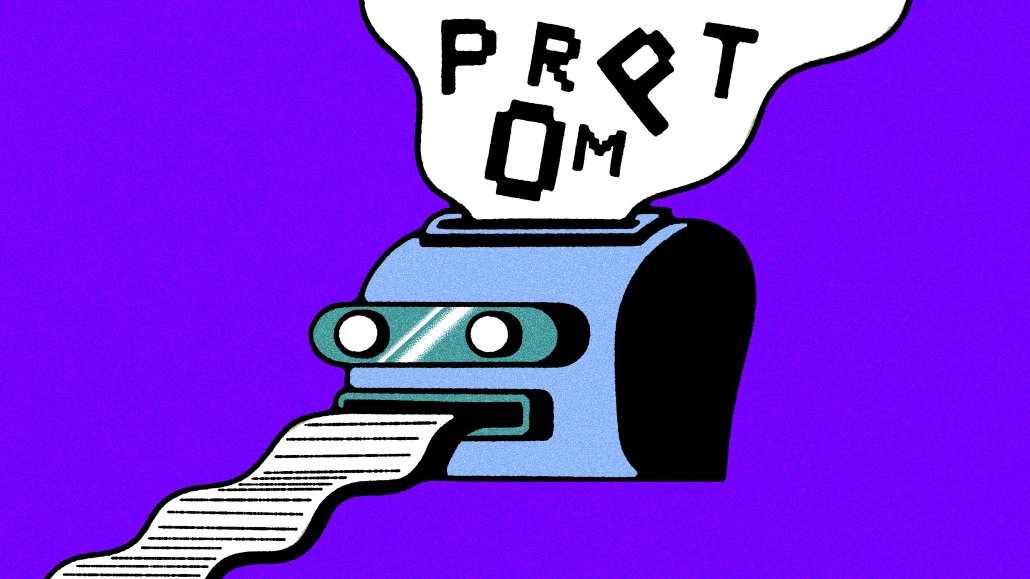Save 50% on a 3-month Digiday+ membership. Ends Dec 5.

This article was first published by Digiday sibling WorkLife
This article is part of WorkLife’s special edition, which examines how the jobs and careers of Generation Z professionals will be reshaped and evolve in the AI-informed era. More from the series →
Generative-AI whiplash is fast becoming a standard response to the dizzying speed at which the technology is evolving.
Its capabilities and flaws are puzzling leaders at schools and universities as many try to ban or regulate its use among students. Meanwhile companies are either embracing the tools and creating their own proprietary large language models (LLMs), or still evaluating how to best incorporate AI into their operations.
One cohort in particular is keen to experiment and learn exactly what these tools are capable of: Generation Z. Born between 1997 and 2012, this digital-first generation is open to harnessing the tools that will reshape how they perform their jobs over the course of their careers.
Their openness however is stirring up an array of misconceptions. Here are some key myths about Gen Z workers and their use of generative AI in school, the workplace and their personal lives.
Myth: Gen Z workers are experts in AI and won’t need training
Ad position: web_incontent_pos1
Gen Z workers are arguably more comfortable with the introduction of transformative new technology than those in other generations who grew up without advancements like smartphones and the internet. But that doesn’t mean Gen Zers know exactly how AI works. Many have interacted with predictive AI tools by way of personalized music and video recommendations, though their experience with newer generative AI tools is limited.
“It’s the start of a whole new era, a whole new ecosystem, and you cannot upfront be proficient with it,” said Alexey Korotich, vp of product at Wrike, a collaborative work management platform. “Additional skills are going to be required and people do not get those skills at birth,” he added.
Myth: Gen Z workers aren’t reckless with AI
While Gen Z workers are more willing and eager to experiment with AI and learn exactly how it works, they still haven’t had enough professional experience to understand the implications of using it in a work setting.
One major generational difference already posing a problem when it comes to AI is differing attitudes toward sharing information online or through other public channels. Younger workers who grew up with social media and few protections around their online privacy are accustomed to accepting cookies and typing in their birthdates to enter a web page — much unlike those in Generation X, or Baby Boomers.
Ad position: web_incontent_pos2
They’re equally open to sharing information with LLMs like ChatGPT — including private company information.
To read the full article click here
More in Media

What publishers are wishing for this holiday season: End AI scraping and determine AI-powered audience value
Publishers want a fair, structured, regulated AI environment and they also want to define what the next decade of audience metrics looks like.

Digiday+ Research Subscription Index 2025: Subscription strategies from Bloomberg, The New York Times, Vox and others
Digiday’s third annual Subscription Index examines and measures publishers’ subscription strategies to identify common approaches and key tactics among Bloomberg, The New York Times, Vox and others.

From lawsuits to lobbying: How publishers are fighting AI
We may be closing out 2025, but publishers aren’t retreating from the battle of AI search — some are escalating it, and they expect the fight to stretch deep into 2026.
Ad position: web_bfu




